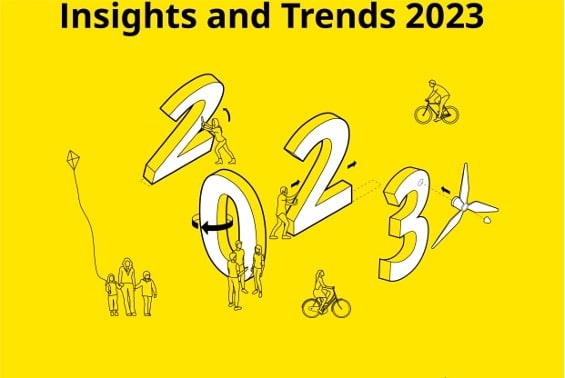NETHERLANDS – In a recent global survey by Ingka Group, over 33,000 individuals across 30 countries revealed an increasing trend of integrating climate-related actions into daily routines.

Key findings show that 41% of participants desire a better understanding of the impact of their climate actions as a potential motivator. However, there is a notable decline in the belief that individual actions can effectively combat climate change, dropping from 81% in 2021 to 76% in 2023. Generation Z (18-24 years old) exhibits the most significant decline, with confidence in their impact falling from 81% to 73%.
Ingka Group collaborated with GlobeScan for this study, building upon research conducted in 2017, 2019, and 2021. The investigation aimed to explore people’s thoughts, emotions, and actions concerning societal and environmental issues such as inequality and climate change.
The current global context, marked by concerns about the cost of living, significantly shapes behavior. The study identifies a rise in money-saving climate actions, including a 50% increase in the use of smart technology to monitor energy use, a 90% increase in savings on heating and cooling, and a 52% rise in purchasing second-hand household items compared to 2021.
Karen Pflug, Chief Sustainability Officer at Ingka Group, emphasizes that the insights highlight the role of affordability in driving sustainable behavior. She underscores the importance of making sustainability accessible and mentions initiatives like promoting plant-based food and energy-efficient products to support customers in their sustainability journey.
The study also underscores a desire for more guidance on prioritizing impactful actions, with 36% expressing a willingness to do more if provided with additional information and advice. Ingka Group sees an opportunity to influence consumer choices by clearly labeling more sustainable products and communicating their benefits.
Persistent concerns about climate change and inequality are revealed, with 68% expressing significant worry about the former and 62% about the latter. Despite these concerns, 83% of respondents express a willingness to take more action, emphasizing the need for increased support from governments and businesses to drive meaningful change.


0 Comments